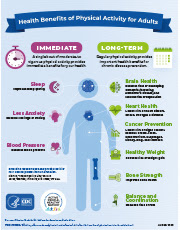The Vital Role of Fitness in Prolonging Veterans' Lives after Service
Serving in the military demands tremendous physical and mental strength. Yet, transitioning to civilian life after leaving the armed forces can present unique challenges for veterans. As they adapt to civilian routines, maintaining fitness often takes a backseat. However, prioritizing fitness is crucial for veterans in order to lead long, healthy lives post-service. In this blog, we explore the importance of fitness for veterans and how it contributes to their overall well-being.
1. Physical Health:
Regular exercise and physical activity play a vital role in promoting veterans' physical well-being. Engaging in fitness activities can help maintain a healthy weight, reduce the risk of chronic diseases such as heart disease and diabetes, and improve cardiovascular health. Staying fit enhances veterans' endurance, strength, and flexibility, enabling them to actively participate in daily activities and enjoy an active lifestyle.
2. Mental Wellness:
Fitness isn't just about physical health; it also has profound effects on mental well-being. After serving, many veterans face challenges such as post-traumatic stress disorder (PTSD) and depression. Exercise has been shown to reduce symptoms of anxiety and depression, boost mood, and improve overall mental resilience. Engaging in physical activity can serve as a powerful tool for veterans to cope with stress, enhance their self-esteem, and find a sense of purpose and accomplishment.
3. Community and Camaraderie:
One of the essential aspects of military life is the camaraderie and strong bonds forged among servicemen and women. Upon leaving the military, veterans often miss the sense of community they once had. Participating in fitness activities, such as joining sports teams, workout groups, or fitness classes, provides an opportunity for veterans to connect with like-minded individuals. These communities offer support, encouragement, and a shared sense of purpose, recreating the camaraderie that veterans treasure.
4. Rehabilitation and Injury Prevention:
During military service, veterans may sustain injuries or develop physical conditions that require ongoing rehabilitation. Regular fitness routines can aid in the recovery process and help prevent further injuries. Exercise programs tailored to individual needs can strengthen injured muscles, improve balance, and increase flexibility, facilitating a smoother transition to civilian life. By engaging in appropriate fitness activities, veterans can regain and maintain their physical capabilities, improving their overall quality of life.
5. Longevity and Quality of Life:
Prioritizing fitness is a proactive step towards ensuring a longer, healthier life after military service. Engaging in regular exercise, adopting a balanced diet, and maintaining a healthy lifestyle reduce the risk of chronic diseases and age-related conditions. Staying physically fit can enhance veterans' energy levels, boost cognitive function, and contribute to a higher quality of life in their post-service years.
Fitness holds tremendous significance for veterans seeking to lead fulfilling lives after their military service. By prioritizing their physical and mental well-being, veterans can reap the countless benefits of regular exercise, including improved physical health, enhanced mental resilience, and a sense of community. As a society, it is our responsibility to support and encourage veterans in their pursuit of fitness, empowering them to live long, healthy lives beyond their honorable service.

Comments
Post a Comment